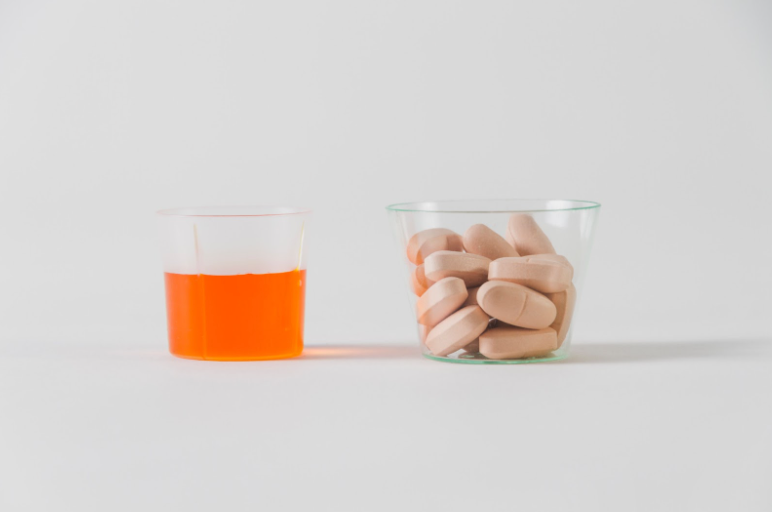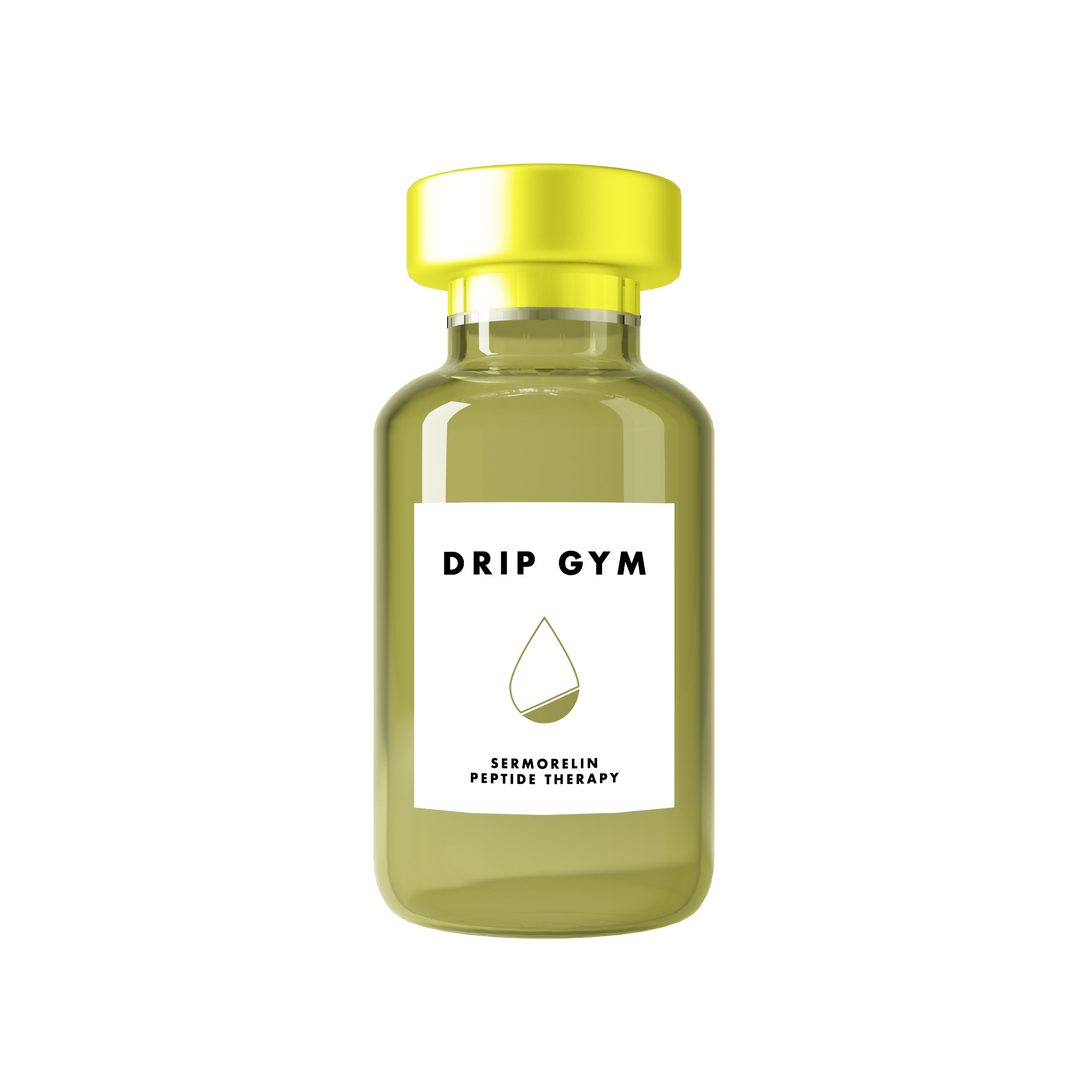Liquid Vitamins vs Pills: Which is More Effective

Nowadays, vitamin deficiencies are very common. In fact, 10-30% of the population has at least one nutrient deficiency. And, it’s no different in big busy cities like New York City, where people don’t have time to eat or live healthily.
That’s why more and more people are turning to vitamin supplements. They allow us to get our daily dose of essential vitamins and minerals to stay healthy.
But with so many options out there, how do you choose, especially with important nutrients like vitamin D. Do you go in liquid or pill form?
Both have their pros and cons, as well as absorption, effectiveness, and convenience.
Here, we’ll help you decide on liquid or pill form, especially when it comes to vitamin D. So if you have a vitamin D deficiency, you can decide between vitamin D liquid vs pill form.
Key Takeaways
- Liquid vitamins absorb faster. Perfect for those who want quick results.
- Pills are stable, portable, and convenient for those on the go.
- Supplementing with vitamin D can help establish vitamin D levels.
- It’s the one for you, depending on your lifestyle, health conditions, and personal preferences.
- For customized solutions, IV vitamin therapy offers unmatched absorption, and customization is available at Drip Gym.
Liquid Vitamins and Pills on the Rise
Our diets don’t always provide the nutrients we need. For example, Vitamin D deficiency is very common. Some people get their daily dose of vitamin D through foods like fatty fish, fortified milk, and egg yolks, but it may not be enough.
For many, supplementation is not an option. It’s a necessity to keep their bodies strong and healthy.
Liquid vitamins and pills make it easier for people (especially busy New Yorkers) to get all the nutrients they’re not getting from their diet. The fact that you can carry them with you or get a vitamin shot is especially great for people living in fast-paced environments where meal prepping isn’t always possible.
Liquid Vitamins vs Pills Absorption
One of the biggest differences between liquid vitamins and pills is how your body absorbs them. Absorption rates determine how much of the supplement your body uses, which can affect its effectiveness.
- Liquid Vitamins: Liquids like liquid vitamin D absorb faster and more efficiently because they bypass most of the digestive process. Instead of waiting to be broken down in the GI tract, they are absorbed almost immediately into the bloodstream.
- Pills: Pills need to break down in the stomach before the nutrients can be absorbed. For some, especially those with digestive issues, this can limit how much of the vitamin is absorbed. However, many pills are designed with controlled-release technology so they can deliver nutrients over time.
Convenience and Ease of Use
For many, taking vitamins is as much about convenience as health. If you don’t have time to make a big meal, you may not have time to deal with a complex vitamin and mineral routine.
- Liquid Vitamins: If you don’t like swallowing pills, liquid vitamins can be a great alternative. They’re also easy to mix into drinks, so you have flexibility in how you consume them. You can also get a couple of shots once or twice a month and save time.
- Pills: On the other hand, pills are more convenient since they’re more portable. You can stick them in your bag, and you’re good to go whether you’re going to work or on vacation. They’re also pre-dosed, so no room for measurement errors.
Effectiveness and Ingredient Concentration
When choosing between liquid vitamins and pills, effectiveness isn’t just about absorption but also ingredient concentration and stability.
- Liquid vitamins: Liquid vitamins allow customized dosages. Instead of a fixed standard measurement (like in pills), you can adjust your liquid doses to your specific needs. We can address specific deficiencies like vitamin D deficiency.
- Pills: Pills have a more stable and consistent formula so their potency lasts longer. For those looking for a no-fuss long-term solution this can be an advantage. But some pills may have unnecessary fillers or binders, which can cause digestive issues in some people.
Liquid or Pill Vitamin D?
Vitamin D especially vitamin D3 is important for bone health, immune function and overall well being. But deciding between liquid vitamin D vs pill form depends on your needs.
- Liquid Vitamin D: It works fast and is great for those with absorption issues like those with digestive conditions.It’s also a good solution for those with vitamin D deficiency who need to replenish their vitamin levels quickly.
- Vitamin D Pills: They’re portable and precise. A good option to keep vitamin D levels in check and for those who want a simple vitamin routine.
Remember to get the best results from a Vitamin D shot (or pill) make healthy changes to your diet. Try adding vitamin D foods like fatty fish or fortified foods.
And sometimes a one size fits all approach just isn’t enough. If you have specific health goals, need quick results or just want peace of mind addressing deficiencies with IV therapy might be the solution.
At Drip Gym, we take the guesswork out of supplementation. We offer customized IV therapy treatments to maximize nutrient absorption so you can achieve optimal health and wellness. Call us today at +1 516-445-7191 to find out how.
Final Words
Now it’s time to choose: pills or liquid vitamins?
In the end, it’s all up to you and your lifestyle and health goals. Do you need rapid absorption or something stable and portable? Do you have trouble swallowing pills, or would you rather avoid getting shots?
Remember, no option is better than the other. While IV therapy has more benefits than traditional pills, it’s all about what’s best for you.
If you’re still unsure which one is best for you, you don’t have to decide alone. At Drip Gym, we can help you make an informed decision.
So, are you ready to work together to achieve optimal health and wellness? Contact us today to learn more about our personalized treatment plans.
DISCLAIMER
If you have any medical questions or concerns, please talk to your healthcare provider. The articles on our website are based on information drawn from medical research, societies, and governmental agencies. However, they are not a substitute for professional medical advice, diagnosis, or treatment.
References
- Barnard, Neal D., et al. “The Limited Value of Multivitamin Supplements.” JAMA Network Open, vol. 7, no. 6, 26 June 2024, p. e2418965, jamanetwork.com/journals/jamanetworkopen/article-abstract/2820375, https://doi.org/10.1001/jamanetworkopen.2024.18965.
- CDC. “About the Second Nutrition Report.” CDC’s Second Nutrition Report, 14 May 2024, www.cdc.gov/nutrition-report/about/index.html.
- Holick, Michael F. “Evidence-Based D-Bate on Health Benefits of Vitamin D Revisited.” Dermato-Endocrinology, vol. 4, no. 2, Apr. 2012, pp. 183–190, https://doi.org/10.4161/derm.20015.
- National Institutes of Health. “Office of Dietary Supplements - Multivitamin/Mineral Supplements.” Nih.gov, 17 July 2024, ods.od.nih.gov/factsheets/MVMS-HealthProfessional/.
- Passeri, Giovanni, and Sandro Giannini. “Benefits of Vitamin D in Health and Diseases.” Nutrients, vol. 15, no. 11, 1 Jan. 2023, p. 2419, www.mdpi.com/2072-6643/15/11/2419, https://doi.org/10.3390/nu15112419. Accessed 12 Oct. 2023.




